Please note, links to all the Freedom Essays are included at the end of this essay. Open any essay to read, print, download, share or listen to (as an audio).
Freedom Essay 45
Prophetic songs —
and the symbolism of the rising sun
Written by Jeremy Griffith, 2017 (added to in 2022)
Apart from romance, the greatest of all themes of our best songwriters has been the dream of humanity one day finding the fabulously liberating and transforming understanding of our species’ good-and-evil-stricken human condition. And the image songwriters invariably reach for to express this dream of enlightenment is the rising sun—because light symbolises knowledge and its ability to defeat the darkness of ignorance; with the ultimate ignorance being of ourselves, understanding of our 2-million-year corrupted, ‘fallen’, soul-destroyed human condition. (See THE Interview and Video/F. Essay 3 for the breakthrough explanation of the human condition.)
Which is why there was only ever one image that could emblazon the cover of FREEDOM: The End Of The Human Condition, presenting, as it says, ‘the redeeming, reconciling, rehabilitating biological explanation of the human condition that brings about this dreamed of dawn of understanding and ends all the suffering and conflict on Earth’.
To help grasp the magnificence of what it is that FREEDOM delivers, consider the lyrics of some of our best songwriters as they utilised the image of the rising sun to describe our species’ bondage, and the glorious dawn of freedom’s arrival.
Before presenting these prophetic amazingly revealing and exciting lyrics, the following extract from my book Freedom Expanded: Book 1 about lyrics like these should be included: “It is relevant to note the phenomenal consistency of description and imagery in all these lyrics, such as of the rising sun representing the arrival of the dreamed of liberating knowledge about our corrupted condition. While the anticipation of our species’ freedom was clearly something we, for the most part, had to block out of our mind because it made living with the truth of our estrangement or alienation from our species’ original all-loving instinctive self or soul (see pars 258 and 287 of FREEDOM) and the resulting terrible emptiness of our existing soul-dead, dark Plato’s-cave-dwelling lives too unbearable (as Sting sang in his 1985 song Consider Me Gone, ‘To look for heaven is to live here in hell’), it was, nevertheless, a fabulously exciting hope and dream that we have all carried just below the surface of our conscious awareness (read more about this block out in The Great Guilt that causes the Deaf Effect, and Plato’s cave is described in Video/F. Essay 11). As such we couldn’t access it by simply deciding to try to think about it—usually it had to bubble up from underneath our much-reinforced protective, defensive, denial-dependent, superficial, everyday state of awareness. Poetry and song have been marvellous vehicles for allowing this to occur because in their creation we allowed our mind to, as it were, semi-disconnect from its protective denial and simply let rhyme and rhythm express thoughts and emotions it otherwise wouldn’t.
It should also be mentioned that while the anticipation of our species’ liberation from the human condition exists in everyone just below the surface of their conscious awareness, on the occasion/s that it did bubble up and break through to the surface it usually wasn’t long before that awareness was once again repressed; it had to be, because, as I said, it made living with the terrible emptiness and darkness of our existing lives too unbearable. The result of this limited access to the truth of another, human-condition-free state, is that some of the composers of the prophetic songs that will be mentioned here have, in later life, not been able to relate to how they were able to write such prophetic songs that anticipate the arrival of understanding of the human condition. For instance, Bob Dylan once said in an interview that ‘As I look back on it now, I am surprised that I came up with so many of them [talking about his early songs]. At the time it seemed like a natural thing to do. Now I can look back and see that I must have written those songs “in the spirit,” you know? Like Desolation Row [1965] – I was just thinkin’ about that the other night. There’s no logical way that you can arrive at lyrics like that. I don’t know how it was done. Interviewer Kurt Loder: It just came to you? Dylan: It just came out through me’ (Rolling Stone, Nov. 1987). And other composers of songs have even denied the suggestion that there was any prophetic, truly profound element to words they had written in their inspired youth and/or in an inspired state. For example, in his 2008 memoir, Thirteen Tonne Theory: Life Inside Hunters and Collectors, the Australian singer-songwriter Mark Seymour spoke about ‘kook’ responses to his (soon-to-be-described) amazingly prophetic 1993 song, The Holy Grail—citing one of my own references to the lyrics of that song as an example. Seymour dismissively said I was suggesting his lyrics were ‘somehow…connected with the dawning of a new consciousness’ (p.343 of 388). Again, the problem with any acknowledgment of another wonderful, human-condition-free world, was that it made living with the terrible estrangement from our original instinctive self or soul and the resulting emptiness of our existing lives too unbearable. Obviously some individuals have been more capable than others of accessing the truths that the human race, as a whole, has had to repress. As is about to be described, Jim Morrison, John Lennon, Bob Dylan and Bono were and are four exceptionally truth-revealing, denial-defying, prophetic songwriters.”
To provide then some lyrics from some of our greatest songwriters: in his 1970 anthem Who’ll Stop The Rain, Creedence Clearwater Revival’s John Fogerty, wrote: ‘Long as I remember, the rain’s been coming down. Clouds of mystery pouring confusion on the ground. Good men through the ages trying to find the sun [there’s the sun, namely understanding]. And I wonder, still I wonder, who’ll stop the rain.’
Given Fogerty’s agonising words about the desperate need to ‘find the sun’ and solve the ‘mystery pouring confusion on the ground’ of our corrupted, ‘fallen’, broken, soul-destroyed, bewildered and lost human condition, the following lyrics from Billy Joel, Supertramp, Tracy Chapman and Sir Bob Geldof should be included because they describe just how impossible it has been for virtually all humans to confront the fearful issue of our ‘good and evil’ conflicted human condition and by so doing find the holy grail of the reconciling, unifying and healing explanation of it—the explanation that now appears in FREEDOM.
Firstly, in his 1993 song, River of Dreams, Billy Joel wrote: ‘In the middle of the night I go walking in my sleep, from the mountains of faith… through the valley of fear… through the jungle of doubt… through the desert of truth… to the river so deep… that is runnin’ to the promised land [where we can finally understand ourselves] … but the river is wide and it’s too hard to cross… I try to cross to the opposite side so I can finally find what I’ve been looking for… I’ve been searching for something taken out of my soul.’ And, more optimistically, in his 1993 song, Two Thousand Years, Joel wrote, ‘So many battles, so many wounds to be healed…This is our moment, here at the crossroads of time…Without compassion there can be no end to hate…There will be miracles after the last war is won [through the finding of the redeeming and reconciling understanding of the human condition]. Science and poetry rule in the new world to come. Prophets and angels gave us the power to see, what an amazing future there will be…We’re on the verge of all things new.’
These lyrics from the English rock band Supertramp’s 1979 hit The Logical Song (written and sung by Roger Hodgson) similarly reveal how desperate we have been to find understanding of the human condition: ‘When I was young [living in our species’ original soulful, innocent state], it seemed that life was so wonderful, a miracle, oh it was beautiful, magical. And all the birds in the trees, well they’d be singing so happily, so joyfully, so playfully watching me. But then they sent me away to [become resigned and] teach me how to be sensible, logical, responsible, practical. And they showed me a [denial-complying, resigned, effectively soul-dead] world where I could be so dependable, clinical, intellectual, cynical…Won’t you sign up your name, we’d like to feel you’re acceptable, respectable, presentable, a [resigned] vegetable! [Note, the agonising process of resignation to living in denial of the human condition that adolescents have had to go through is explained in F. Essay 30.] At night, when all the world’s asleep, the questions run so deep for such a simple man. Won’t you please, please tell me what we’ve learned. I know it sounds absurd but please tell me who I am. Oh, won’t you help me and tell me who I am [explain the corrupted, mad, deranged, soul-destroyed state of our human condition to me]. Who I am, who I am, who I am.’
And in her 1995 album New Beginning, which has a sunflower on its cover, Tracy Chapman wrote and sang: ‘The world is broken into fragments and pieces that once were joined together in a unified whole… The whole world’s broke and it ain’t worth fixing. It’s time to start all over, make a new beginning… Change our lives and paths, create a new world… There’s too much fighting, too little understanding… We need to… make a new [truthful, sun-drenched with understanding] language, with these we’ll define [explain] the world and start all over.’
Another of Tracy Chapman’s songs, Why?, from her 1986 album Tracy Chapman, is so prophetic its lyrics simply have to be included: ‘Why do the babies starve, when there’s enough food to feed the world. Why when there’re so many of us, are there people still alone. Why are the missiles called peace keepers, when they’re aimed to kill. Why is a woman still not safe, when she’s in her home. Love is hate, war is peace, no is yes, and we’re all free. But somebody’s gonna have to answer, the time is coming soon, amidst all these questions and contradictions, there’re some who seek the truth. But somebody’s gonna have to answer, the time is coming soon, when the blind remove their blinders, and the speechless speak the truth.’
And in his 1986 album with the appropriate title Deep in the Heart of Nowhere, Sir Bob Geldof wrote and sang, ‘What are we going to do because it can’t go on… This is the world calling. God help us’, and ‘These days are growing colder now, the light is growing dim… Searching through their sacred books for the holy grail of “why”, but the total sum of knowledge knows no more than you or I.’
Jim Morrison and The Doors’ 1968 song Waiting for the Sun contains these lyrics that anticipate the arrival of the ‘promised land’ and the ‘new beginning’ of the sunlit ‘new world’ where we have the answer to the ‘holy grail of “why”’, namely where we have found ‘understanding’ of the human condition: ‘At first flash of Eden [a human-condition-free world], we race down to the sea. Standing there on freedom’s shore, waiting for the sun [there’s the title of FREEDOM and the sun metaphor together!]; waiting for the sun; waiting for the sun… Waiting for you to tell me what went wrong [waiting to explain our good-and-evil-stricken human condition]’. Similarly, in their 1966 song Break On Through, Morrison wrote: ‘the day destroys the night, night divides the day [understanding defeats ignorance]… break on through to the other side [to a human-condition-understood-and-ameliorated new world]’.
The writers of the 1967 rock musical Hair similarly pleaded to ‘Let the sun shine in’, and also looked forward to the time of ‘Harmony and understanding, sympathy and trust abounding. No more falsehoods or derisions, golden living dreams of visions, mystic crystal revelation and the mind’s true liberation [from the human condition]. Aquarius!… As our hearts go beating through the night, we dance unto the dawn of day, to be the bearers of the water, our light [of understanding] will lead the way.’
The 1967 song San Francisco is recognised as the unofficial anthem of the counter culture movement of the 1960s, a counter culture that was actually anticipating the arrival of the human-race-transforming explanation of the human condition that has now finally arrived. (Note that the author of this essay, Jeremy Griffith, is a ‘baby boomer’ from that inspired 1960s generation—U2’s Bono described 1960s music as the ‘golden age of pop’ (God Part II, 1988).) Some of the lyrics from it include ‘If you’re going to San Francisco, be sure to wear some flowers in your hair… you’re gonna meet some gentle people there… Summertime will be a love-in there… All across the nation, such a strange vibration, people in motion, there’s a whole generation with a new explanation’.
Another 1960s classic, Dancing in the Street (1964), sung by Martha and the Vandellas, anticipated the human-condition-resolved, sun-drenched summertime of a transformed, human-race-rehabilitated new world for humans, with these awesomely exciting lyrics: ‘Calling out around the world, are you ready for a brand new beat. Summer’s here and the time is right for dancing in the street… All we need is music, sweet music, there’ll be music everywhere… Oh, it doesn’t matter what you wear, just as long as you are there. So come on, every guy, grab a girl, everywhere around the world.’
The words of Walter Earl Brown’s 1968 song If I Can Dream, which was written for Elvis Presley, also spoke of the dream of finding the answer we need of the explanation and resolution of the human condition: ‘There must be peace and understanding sometime, strong winds of promise that will blow away all the doubt and fear. If I can dream of a warmer sun [there’s the sun again] where hope keeps shining on everyone… We’re trapped in a world that’s troubled with pain… Still I am sure that the answer’s gonna come somehow, out there in the dark, there’s a beckoning candle.’
One of Cat Stevens’s (or Yusuf Islam as he now calls himself) most famous songs is Peace Train (1971), and although he doesn’t mention the sun directly, he uses the reverse metaphor of ‘darkness’ to describe our life without reconciling understanding of ourselves: ‘something good has begun. I’ve been smiling lately, dreaming about the world as one. And I believe it could be, some day it’s going to come. Cause out on the edge of darkness there rides a peace train [Note that’s almost the same as Walter Earl Brown’s ‘out there in the dark, there’s a beckoning candle’]… [to] take me home again [back to our species’ original all-loving, soulful, sound state]… Everyone jump upon the peace train… come and join the living, it’s not so far from you, and it’s getting nearer, soon it will be true.’
Another of Cat Stevens’s famous songs, Changes IV (1971), also looked forward to the arrival of the fabulous dawn of understanding when he wrote and sang: ‘Don’t you feel a change is coming from another side of time, breaking down the walls of silence, lifting shadows from your mind. Placing back the missing mirrors that before you couldn’t find, filling mysteries of emptiness…Yesterday has past, now let’s all start the living for the one that’s going to last…Don’t you feel the day is coming that will stay and remain when your children see the answers…when the clouds have all gone, there will be no more rain, and the beauty of all things is uncovered again. Don’t you feel the day is coming, and it won’t be too soon, when the people of the world can all live in one room, when we shake off the ancient chains of our tomb, we will all be born again of the eternal womb.’
Also, in his 1970 song On The Road To Find Out, Cat Stevens dreams of the fulfillment of humans’ immensely heroic journey to find understanding of the human condition because that would enable him to clear his mind, singing, ‘I left my happy home to see what I could find out. I left my folk and friends with the aim to clear my mind out…So on and on I go…so much left to know, and I’m on the road to find out…on the way I wonder, through descending snow, and through the frost and thunder. I listen to the wind come howl, telling me I have to hurry…Then I found myself alone…thinking about my home…there is no use in lying…the answer lies within, so why not take a look now? Kick out the devil’s sin [all the lying and]…pick up the good book [the Bible to find some denial-free truth] now.’ (See F. Essay 39 and my book Death by Dogma for explanation of the crucial role religions have played in the human journey.)
Another who foresaw that ‘a change is coming’ to the human condition was Sam Cooke in his 1964 song that he titled A Change Is Gonna Come, which has the lyrics ‘I go to my brother and I say, “Brother, help me please.” But he winds up knockin’ me back down on my knees…It’s been a long, a long time coming, but I know a change gon’ come, oh yes it will.’
Cat Stevens’s and Sam Cooke’s anticipations of a ‘coming’ ‘change’ evokes the wonderful words of African American Charles Tindley’s 1900 gospel song I’ll Overcome Some Day, which has become the great song of hope of our species’ emancipation from the human condition, We Shall Overcome, that the folksinger Joan Baez and many others have sung: ‘We shall overcome some day. Oh, deep in my heart, I do believe, we shall overcome some day…We’ll [find reconciling understanding of the human condition and] walk hand in hand some day…We shall all be free some day…not afraid some day…not alone some day…The whole wide world around some day…We shall overcome [the human condition] some day.’
Then there are Bono’s words from U2’s 1987 song Where The Streets Have No Name: ‘I want to tear down the walls that hold us inside [Plato’s metaphorical cave of ignorant darkness that humanity has been imprisoned inside—see Video/F. Essay 11], I want to reach out and touch the flame [confront and by so doing find the truth about ourselves that will take us to a place], where the streets have no name [where we no longer have to egocentrically name everything]. I want to feel the sunlight [of enlightenment] on my face, see the dust cloud [of our tortured human condition] disappear without a trace, I want to take shelter from the poison rain, where the streets have no name… We’re beaten and blown by the wind, trampled in dust. [But] I’ll show you a place, high on a [redeemed and rehabilitated] desert plain, where the streets have no name… Then there will be no toil or sorrow, then there will be no time of pain.’ Similarly, in I Still Haven’t Found What I’m Looking For (1987), where Bono sang, ‘I believe in the Kingdom Come when all the colours will bleed into one’. Saying ‘I believe in the Kingdom Come’ is a reference to that most prophetic and thus greatest of all prayers, which Jesus Christ gave us: ‘Our Father in heaven [Integrative Meaning], hallowed be your name. Your [cooperative and loving, integrative] Kingdom come, your [integrativeness] will be done, on earth as it is in heaven [by the finding of understanding of the human condition]’ (The Lord’s Prayer, Bible, Matt. 6:9-10). (See F. Essay 23 for the explanation of Integrative Meaning.)
Also, in U2’s wonderfully named 1987 song, When Love Comes To Town, Bono wrote these exciting lyrics that anticipated humanity’s liberation from the human condition: ‘I was a sailor, I was lost at sea. I was under the waves… But I did what I did before love [the ultimate expression of which is truth] came to town… I’ve seen love conquer the great divide [between night and day, ‘good and evil’, idealism and realism, the left-wing and right-wing, instinct and intellect – see Video/F. Essay 3]… When love comes to town I’m gonna jump that train [Note this is similar to Cat Stevens’ ‘Everyone jump upon the peace train’], when love comes to town I’m gonna catch that flame.’
U2’s 1988 song Love Rescue Me is even more explicit about the arrival of a human-condition-resolved, sunlight-of-understanding-filled new world: ‘Love [truth] rescue me, come forth and speak to me, raise me up and don’t let me fall [give me the redeeming, reconciling and rehabilitating explanation of the human condition]. No man is my enemy [I don’t want to be living with so much upset distrust, resentment, anger and hate inside me anymore], my own hands imprison me [I’m imprisoned by the unbearable dilemma of my own flawed, immensely upset, seemingly horribly imperfect human condition], love [truth] rescue me… the sun in the sky, makes a shadow of you and I [the liberating truth initially exposes the imperfection of our lives, but that’s not a problem because we can let all that pass by now that we have understanding of our corrupted condition – see F. Essay 15]… In the cold mirror of a glass, I see my reflection pass, I see the dark shades of what I used to be [before being liberated by understanding]… Yeah I’m here without a name, in the palace of my shame, I said love rescue me. [At this point in the song there is a very long pause, then suddenly the song picks up again but this time describing a whole new liberated world.] I’ve conquered my past, the future is here at last. I stand at the entrance to a new world I can see. The ruins to the right of me, will soon have lost sight of me. Love, rescue me.’
Also, even though Bono wrote and sang about the need to confront and solve the human condition, to ‘kick the darkness till it bleeds daylight’ (God Part II, 1988) as he so perfectly described it, in U2’s 1992 song Staring At The Sun he also wrote and sang about how scorching the issue of the human condition has been, and, as a result, how living in a resigned state of denial of the human condition has been so necessary: ‘It’s been a long hot summer, let’s get under cover, don’t try too hard to think, don’t think at all. I’m not the only one staring at the sun, afraid of what you’d find if you take a look inside. Not just deaf and dumb, I’m staring at the sun, not the only one who’s happy to go blind.’ (Again, Resignation is explained in F. Essay 30.)
While this next song is not as well known as the other songs in this collection, its description of the immensely heroic, hide-from-the-sun agony of having to live in the soul-dead state of denial of the human condition warrants its inclusion. In her 1981 ballad, Working Man, the Canadian singer-songwriter Rita MacNeil’s description of having to work every day underground in a coal mine invokes in the listener the full horror of our soul-destroying life of having to live deep inside Plato’s metaphorical cave in the resigned deathly dark, soul-dead state of denial of the human condition: ‘At the age of sixteen years, oh he quarrels with his peers [resists Resignation], [but] he vowed they’d never see another one [he would stop quarrelling/resisting, and go down] in the dark recess of the mine [accept having to live a soul-destroying life in Resignation], where you age before your time, and the coal dust lies heavy on your lungs. It’s a working man I am, and I’ve been down under ground, and I swear to God if I ever see the sun, oh for any length of time I can hold it in my mind [have understanding of the human condition so I never have to live in a soul-destroying, resigned state of denial again], I never again will go down under ground. At the age of sixty-four, oh he’ll greet you at the door, and he’ll gently lead you by the arm, through the dark recess of the mine, oh he’ll take you back in time, and he’ll tell you of the hardships that were had.’
There is also The Beatles’ 1969 song Here Comes The Sun, again anticipating our species’ liberation from the bewildering darkness of ignorance about our lives’ meaning and worth: ‘Here comes the sun, here comes the sun, and I say, it’s all right… it’s been a long cold lonely winter… the smiles returning to the faces… Sun, sun, sun, here it comes… I feel that ice is slowly melting.’ Of course, the most marvellous description of a ‘sun’-light-of-understanding-drenched world liberated from the agony of the ‘long cold lonely winter’ of our human-condition-stricken lives was given by the Beatle John Lennon in his 1971 song Imagine, some of the lyrics of which are ‘imagine there’s no heaven…no hell below us’, a world without the condemning differentiation of good and evil, a world liberated from the uncertainty and insecurity of the human condition and thus the need for religion (again religion is explained in F. Essay 39 and in Death by Dogma), where there is ‘Nothing to kill or die for, and no religion too… all the people living life in peace… No need for greed or hunger, a brotherhood of man… all the people sharing all the world… [when] the world will be as one.’ Yes, so that all his imaginings could come true, in his 1971 song Gimme Some Truth John Lennon pleaded for an end to all the lying involved in our resigned state of denial of the human condition: ‘All I want is the truth, just gimme some truth. I’ve had enough of reading things by neurotic…politicians…I’m sick to death of seeing things from tight-lipped…chauvinists…I’ve had enough of watching scenes of schizophrenic…prima-donnas…I’m sick and tired of hearing things from uptight…hypocrites…All I want is the truth now, just gimme some truth NOW.’
And, there’s the Nobel Prize for Literature-winner Bob Dylan’s prophetic songs. Firstly, his powerful description of humans’ present bewildered and lost human-condition-stricken lives in his 1965 song Like A Rolling Stone: ‘How does it feel to be on your own with no direction home, like a complete unknown, like a rolling stone’; and in Mr. Tambourine Man (1964), ‘I’m not sleepy and there is no place I’m going to… I’m branded on my feet, I have no one to meet, and the ancient empty street’s too dead for dreaming… Then take me disappearin’ through the smoke rings of my mind, down the foggy ruins of time… far from the twisted reach of crazy sorrow… Hey! Mr. Tambourine Man, play a song for me.’ Yes, as Dylan demanded in his 1968 song All Along the Watchtower: ‘There must be some way out of here… There’s too much confusion, I can’t get no relief… There are many here among us who feel that life is but a joke… So let us not talk falsely now, the hour is getting late. All along the watchtower, princes kept the view [waiting and watching for the time when understanding of the human condition would finally arrive]’. Dylan similarly pleaded in Blowin’ In The Wind (1962): ‘How many years can some people exist before they’re allowed to be free?…The answer is blowin’ in the wind [because we didn’t know how long it might take for the redeeming understanding of ourselves to be found]’. Then his anticipation of the arrival of the desperately needed liberating understanding of ourselves in his 1963 song When The Ship Comes In: ‘The hour that the ship comes in [what ship? The ship of understanding]… and the morning will be a-breaking [there’s the sun]. The fishes will laugh as they swim out of the path, and the seagulls they’ll be a-smiling, and the rocks on the sand will proudly stand, the hour that the ship comes in [nature is going to be so relieved by the ending of human upset]… And the words that are used to get the ship confused will no longer be understood as the spoken [all the ignorant darkness of denial and delusion will be replaced by the light of ‘the spoken’ truth]… For the chains [holding the truth back] of the sea will have busted in the night… And like Goliath, they’ll be conquered.’ All the resigned dishonest false excuses we employed while we couldn’t explain our corrupted condition, and all the deluded, pseudo idealistic, PC, ‘woke’ false starts to a human-condition-free world, will be exposed and ‘conquered’ by the truthful understanding of ourselves that actually heals and transforms the human race—and, as Dylan wrote and sang in another of his prophetic songs, The Times They Are A-Changin’ (1964), the result will be that ‘the present now will later be past… For the times they are a-changin’!
And, as alluded to earlier, in the 1993 hit song Holy Grail, Mark Seymour in the Australian band Hunters and Collectors wrote and sang: ‘Woke up this morning from the strangest dream, I was in the biggest army the world had ever seen, we were marching as one on the road to the Holy Grail [the ‘Holy Grail’ being the traditional, historical term for the redeeming explanation of the human condition]. Started out seeking fortune and glory, it’s a short song but it’s a hell of a story, when you spend your lifetime trying to get your hands on the Holy Grail. Well have you heard about the Great Crusade [of human-condition-liberated humans]? We ran into millions but nobody got paid…We were so far from home…nothing left to plunder…dying like flies…I’ve been searching for an easy way to escape the cold light of day [especially by adopting makes-you-feel-good, pseudo idealistic causes—see my book Death by Dogma]…but I’ve got nowhere else to go [I’ve got to face the truth now]…I followed orders [lived a civilised life], God knows where I’ve been, but I woke up alone, all my wounds were clean [by the Holy Grail of rehabilitating understanding of ourselves]’.
The British folk rock band Mumford & Sons released a song in 2024, produced and with back-up vocals by American songwriter and singer Pharrell Williams, called Good People which has some amazing anticipations of a ‘revelation’ that after ‘so long’ (and in a ‘deadly’ world where now even ‘the mountains are screaming’ with suffering) finally allows us ‘to see’ like ‘the sun’ ‘rising’:
‘VERSE 1: And I’m done being tired so right now I’m inspired / (Welcome to the revelation) / I was once under water and now I’m on fire / (Welcome to the revelation) / And I feel it in the air that Mother Earth ain’t steady / Feel so alive even though times are deadly.
PRE-CHORUS: And in my soul / (Get ready) / Something is stirring now / (Get ready) / And I’m not worried / (Get ready) / You better get ready to see now // CHORUS: Good people / Been down / For so long / And now / It’s like / The sun is rising / Good people / Been down / For so long / And now / I see / The sun is rising.
VERSE 2: Long was the night but you know we’ve been dreaming / (Welcome to the revelation) / The city’s getting loud cause the mountains are screaming / (Welcome to the revelation) / When you’ve been through it all and it won’t get no worse / Said the first shall be last and the last shall be first.
PRE-CHORUS & CHORUS REPEATED
FINALE: Welcome to the revelation / Welcome to the revelation / The sun is rising / It’s coming / It’s on its way / So nothing tonight is getting in the way / The sun is rising / It’s coming / It’s on its way / So nothing tonight is getting in the way.’
I should mention that the band has resisted being labelled a Christian rock band, so the song is not about Christ, and really the song can only be an anticipation of the arrival of the human-race-liberating actual understanding of the human condition—of the ‘sun…rising’ ‘revelation’ that allows us ‘to see now’!
At this point, Dorothy’s song Over The Rainbow (music by H. Arlen, lyrics by E.Y. Harburg) from the 1939 American musical film The Wizard of Oz should be included because of its truly wonderful anticipation of our liberation from the human condition, which no doubt is why in 2001 it ‘was voted the greatest song of the 20th century in a joint survey by the National Endowment for the Arts and the Recording Industry Association of America’. The song has the lyrics: ‘Somewhere, over the rainbow, way up high. There’s a land that I heard of once in a lullaby. Somewhere, over the rainbow, skies are blue. And the dreams that you dare to dream really do come true. Someday I’ll wish upon a star, and wake up where the clouds are far behind me. Where troubles melt like lemon drops, away above the chimney tops. That’s where you’ll find me [living in a fabulous human-condition-reconciled and redeemed new world].’
The Wizard of Oz, ‘the most seen film in movie history’ (US Library of Congress), was directed by Victor Fleming and is based on the 1900 children’s novel The Wonderful Wizard of Oz by L. Frank Baum. It is about a young girl named Dorothy (played by Judy Garland) who is transported to the magical land of Oz and, while overcoming the Wicked Witch along the way, she has to follow a yellow brick road to the Emerald City where she can meet the Wizard of Oz who has the power to return her home; home being a state of alienation-free unity of self where all ailments are cured, represented by her friends, a scarecrow, a tin man, and a cowardly lion gaining a brain, a heart and courage respectively.
In a brilliant analysis by a Year 11 school girl named Lindsay Eyler (who is now a leading US attorney) of the ‘Mysticism in the Wizard of Oz’ (see www.wtmsources.com/298), Eyler explained that after being ‘lifted off the ground in a great cyclone’ (which we can now understand is an apt metaphor for Dorothy as a young girl, and for the human race as a whole, being torn away from a state of original innocence), Dorothy is ‘desperate to find her way back home’ and so ‘sets off on what turns out to be both a delightful and dangerous journey along the “road of yellow bricks”’, which we can now understand is the journey humanity has been on along what has been an horrifically agonising but immensely heroic and thus, in truth, a truly golden road to enlightenment of our corrupted, fallen, seemingly dreadful human condition. As Eyler says, ‘her journey over the yellow brick road’ is a ‘journey in search of Ultimate Truth’ that will enable ‘unity with the Absolute’, which we can now understand means finding the reconciling understanding of why we lost our innocence both individually and collectively and seemingly failed to comply with the ‘Absolute’ ‘Truth’ of Integrative Meaning (again, see F. Essay 23 for the explanation of Integrative Meaning). The journey involves entering ‘the bright and wondrous Land of Oz’ and reaching the ‘Emerald City’, which is ‘the dwelling place of’ the ‘all-powerful Wizard, the one she believes can enlighten her to Ultimate Truth’. We can now understand that what this means is that ‘enlighten[ment]’ of our corrupted condition depends on not hiding in Plato’s dark cave of denial, but venturing out into the ‘Truth[ful]’, ‘bright’, sun-filled world outside that dark cave of denial. To further explain the brightness, Eyler says, ‘God radiates brightness’, and we can now understand that ‘God’ is the most confronting but also the most fundamental of all truths, namely Integrative Meaning. Eyler goes on to say that on her journey, Dorothy has to ‘succeed in killing’ ‘the Wicked Witch’ who ‘represents the Devil’, which we can now understand means that to reach the ‘Ultimate Truth’ requires defying and defeating all the human-condition-denying lies and pseudo idealistic delusions in the world. Eyler’s analysis describes how when Dorothy and her friends ‘finally do near the Emerald City’ it ‘becomes brighter and brighter’ such that ‘they must wear sunglasses, for otherwise “the brightness and glory of the Emerald City would blind them.”’ This perfectly describes how extremely difficult it has been for the upset human race to confront the issue of the human condition, yet it had to be confronted and understood for all our ailments to be cured, represented by Dorothy’s friends, a scarecrow, a tin man, and a cowardly lion gaining a brain, a heart and courage respectively. As Eyler summarises, ‘the Wizard of Oz is…a story about the triumph of good over evil’, good and evil being the issue of the human condition.
And for the pièce de résistance conclusion to this collection of prophetic songs, there is Ludwig van Beethoven’s 1824 Ninth Symphony, which is ‘generally considered to be the supreme artistic achievement of western civilisation’ (Paul Gambaccini, ‘Your Desert Island Discs’, BBC Radio 4, 11 Jun. 2011). Indeed, indicative of that status, its final movement was adopted by the European Union as its anthem in 1985.
This sublime piece of music anticipates humankind’s freedom from the agony of the human condition, with its full choir of human voices rising to the final height of glorious unison and excitement with the words from Friedrich von Schiller’s 1785 poem Ode to Joy: ‘Joy’, ‘Joyful, as a hero to victory!’, ‘Join in our jubilation!’, ‘Glad, as His suns fly [some other translations say ‘Gladly, as His heavenly bodies fly’]’, ‘We enter, drunk with fire, into your [understanding’s] sanctuary… Your magic reunites… All men become brothers… All good, all bad… Be embraced, millions! This kiss [of understanding] for the whole world!’ (for this translation see www.wtmsources.com/230).
You can listen to this extraordinary piece of music and hear an explanation of its significance in the video below.
Make and see comments here
So, it is clear from the creation and popularity of these songs (and more anticipations in songs of the arrival of a human-condition-resolved world can be read here) that humans have a deep awareness of the human condition, and an equally deep faith, hope and trust that one day the reconciling understanding of our ‘good and evil’-conflicted condition would be found. And it is precisely this liberating understanding that is presented in FREEDOM. With its redeeming biological explanation of the human condition, FREEDOM: The End Of The Human Condition brings the yearned for relieving, healing and transforming sunshine of understanding into the lives of all humans and sets us all free at last from the agony of the human condition! (See F. Essay 15: How your life can immediately be transformed.)
As I describe in the part of Freedom Expanded titled ‘Anticipations of the arrival of our species’ liberation’, the incredible innocence, excitement and idealism of the post-war 1960s generation that was so apparent in so many of the young people who attended the Woodstock Festival in the United States in August 1969 didn’t last long. As the commentary in the My Generation episode of the 2007 BBC documentary Seven Ages of Rock recognised, ‘after the 1967 climax of the summer of love…the innocent optimism of the 1960s gave way to more volatile, uncertain times…A utopia like 1967 couldn’t possibly last…no longer could you be an innocent flower child…The 1969 Woodstock Festival would see the sun set on the hippie dream…[After The Rolling Stones’ December 1969 Altamont Festival where a man was murdered in the audience] the innocence of the 1960s was lost forever’—but the ‘sun’ had not ‘set’ ‘forever’ on the ‘optimism’ of the 1950s and ‘1960s’ ‘dream’ of a human-condition-reconciled ‘utopia’ because it has re-emerged as the inspiration behind the finding of the human-race-transforming understanding of the human condition presented in FREEDOM. (Note, as mentioned earlier, Jeremy who wrote FREEDOM, is a ‘baby boomer’ from the golden 1960s generation.) The vision behind rock and roll has been realised. Although John Lennon is not here to see the fulfilment of all his imaginings, he did at least know what was coming for humanity, and was ‘around’ for its beginnings—as footage of him from a 2010 documentary about him indicates: ‘This 1960s bit was just a sniff, it was just waking up in the morning and we haven’t even got to dinner time yet, and I just can’t wait, I just can’t wait, I’m so glad to be around’ (Discovering Lennon, 3DD Productions).
So now it’s time to share the human-race-liberated excitement of our founding member Tony Gowing, dressed up as John Lennon, singing a song he wrote titled Let’s Go! with our WTM band, The Denialators.
- - - - - - - - - - - - - - - - - -
Since writing this essay in 2017, I have become aware of a dance craze that swept the world in 2020 in response to an incredibly beautiful South African song called Jerusalema, by DJ ‘Master KG’ (who wrote the music) and Nomcebo Zikode (who wrote and sang the lyrics, in the Zulu language). I just wanted to say about the immense excitement in dancing—such as in the video above of children dancing to Jerusalema, and in many songs and other forms of artistic expression—that the more we see through our behaviour now that we have understanding of it, the more we will realise that such excitement is actually all based on the anticipation of one day freeing ourselves from the human condition! Just like when we ‘fall in love’, what we’re actually doing is transporting ourselves to, or letting ourselves go to, or allowing ourselves to ‘fall’ into, the dream of what it’s going to be like to be free of the human condition (see par. 786 of FREEDOM). That’s how dead our world really is—the only truly positive in our world is the dream of freedom from the psychological prison of our tortured condition. We’ve never been able to allow ourselves to recognise this truth while we couldn’t explain it all, but it’s actually true: all real enthusiasm is enthusiasm for our soul’s true world and the return of it. The word ‘enthusiasm’ comes from the Greek word ‘enthios’ meaning ‘God within’, and our soul’s magic integrated, cooperative and loving world is our God within, and it’s the God that’s coming now that we can leave behind the agony of the human condition (see page 263 of A Species In Denial). So when you watch this video, you’re watching people dancing to the joy of our species one day being free of the human condition!
Look at the squalor the children are dancing in, which are the slums of Uganda—and anyway, slums aside, in the upset world we live in how long is the innocence of those girls going to last, and how long before the egos of those boys becomes diabolical—so the dancers can’t be excited about any of that, so they must be excited about something beyond the realm that they are in! Nomcebo said she was in a desperate state, ‘about to lose hope’ (Helen Sullivan, ‘Nomcebo, the voice behind Jerusalema, South Africa’s global hit’, The Guardian, 7 Oct. 2020), when she wrote the lyrics to Jerusalema, the main lines of which are, ‘Do not leave me here; My place is not here; My kingdom is not here; Save me’—so that says it all, because our original all-sensitive and all-loving original innocent world is our true ‘kingdom’, our true ‘place’, and that is certainly not ‘here’! But now we are ‘save[d]’ by the redeeming understanding of our corrupted condition and can head back home to soundness and happiness. And since the truth is that the extremely upset world we are living in is devoid of any real love or life, in fact it’s basically dead, how absolutely wonderful it is that we can leave it behind forever! So as the realisation catches on that the doors have finally been flung open to our freedom from the human condition, there’s going to be a stampede of people escaping the old dead world—and then the dancing and singing will not be a yearning for a bygone life or a future dream but the celebration of a present reality!
Actually, because the understanding of the human condition that the WTM members live in support of is the only thing that can save the world now, I have a dream of one day encouraging ‘Master KG’ and Nomcebo Zikode to record another version of their fabulous song, this time with the following lyrics; and hopefully Nomcebo would sing it in English as well as Zulu: ‘The World Transformation Movement is my home, please save me, look after me, do not leave me here [repeat] / My place is not here, my kingdom is not here, please save me, look after me [repeat] / Please save me, please save me, please save me, do not leave me here [repeat] / My place is not here, my kingdom is not here, please save me, look after me [repeat] / The World Transformation Movement is my home, please save me, look after me, do not leave me here [repeat] / My place is not here, my kingdom is not here, please save me, look after me / Please save me, please save me, please save me, do not leave me here [repeat].’ (If you want to hear some other spectacular African singers, listen to the original 1975 version of the musical Ipi Ntombi on Spotify or Apple Music.)
There are two other incredibly inspiring songs that would be wonderful to be adapted for our project. They are so uplifting, and they really do apply to the world that opens up for all humans now that we have understanding of the human condition. Since these gospel songs were about the incredible sustenance, relief and joy of being able to live through religious faith, which was basically the dream of one day finding the liberating understanding of our corrupted human condition, how much more joy and emotion is justified now that we’ve actually found that liberating understanding! Gospel singers had such fun singing about the dream of what’s now arrived, well we can all now become gospel singers absolutely dancing in the aisles of joy!
The two great hymns that would be wonderful to adapt to our project that actually fulfils the dream they are singing about, are Amazing Grace and Battle Hymn of the Republic. These are just two good renditions of the hymns: Amazing Grace sung by Judy Collins: https://www.youtube.com/watch?v=AtteRD5bBNQ, and Battle Hymn of the Republic sung by Odetta: https://www.youtube.com/watch?v=4VsE9T4Sr30. Sadly Aretha Franklin or Whitney Houston are no longer alive to sing our versions for us, but soon we will have some awesome singers turn up in support of our project, and won’t it be so exciting! Jake and Elwood Blues did some pretty good gospel dancing (in the 1980 film The Blues Brothers), but that ain’t nothin’ to what’s comin’!
So the following are the WTM-adapted lyrics to these fabulously inspiring hymns:
The WTM’s (World Transformation Movement’s) Amazing Truth
(the WTM’s version of Amazing Grace)
Amazing truth grace! How sweet it is the sound
That To have saved a wretch like me!
I once was lost, but now am found
Was blind, but now I see.
’Twas ignorance grace that taught my heart to fear,
And grace But truth my fears relieved;
How precious is that truth to me did that grace appear
The hour I first did hear believed.
Through many dangers, toils and snares,
We have already come;
’Twas Grace that brought us safe thus far,
And Grace Now Truth will lead us home.
The Lord has My faith promised good to me,
His word It my hope secureds;
He will It was my shield that protected me and portion be,
And so I did endure As long as life endures.
But now with that faith fulfilled Yea, when this flesh and heart shall fail,
And my mind and soul at ease And mortal life shall cease,
A new free world we now do build I shall possess, within the veil,
A life of joy and peace.
The Earth Our pain shall soon dissolve like snow,
The sun forbear forever to shine;
The redeeming truth I now do know But God, Who called me here below,
It’s the truth for all mankind Will be forever mine.
We’re all together, free at last When we’ve been there ten thousand years,
Bright shining as the sun,
No guilt to carry like in the past, We’ve no less days to sing God’s praise
Unending love for everyone Than when we’d first begun.
Amazing truth grace! How sweet it is the sound
That To have saved a wretch like me!
I once was lost, but now am found
Was blind, but now I see.
Battle Hymn of the WTM (World Transformation Movement)
(the WTM’s version of Battle Hymn of the Republic)
Mine eyes have seen the glory of the arrival coming of the truth Lord;
He is It has trampleding out the vintage where the grapes of wrath were loosed are stored;
It hath brought the fabled light of unending love and peace He hath loosed the fateful lightning of His terrible swift sword:
His So now the truth is marching on.
(Chorus)
Glory, glory, hallelujah!
Glory, glory, hallelujah!
Glory, glory, hallelujah!
His The truth is marching on.
I have seen Him the truth in the watch-fires of a hundred circling camps,
Celebrating its arrival in endless evening dance They have builded Him an altar in the evening dews and damps;
I can read His every righteous sentence by the dim and flaring lamps:
His day The truth is marching on.
(Chorus)
We read and sang our gospels of desperate hope and plea I have read a fiery gospel writ in burnished rows of steel:
And kept our faith alive that one day we’d all be free “As ye deal with my contemners, so with you my grace shall deal”;
And now with understanding we let our hate and sorrow cease Let the Hero, born of woman, crush the serpent with his heel,
Since God And truth is marching on.
(Chorus)
With hope we carried on and on, and He has sounded forth the trumpet that shall never called retreat;
And now at last we’re all free and our yearning hearts are replete He is sifting out the hearts of men before His judgment-seat;
Oh, be swift, my soul, to respond to truth answer Him! Be jubilant, my feet!
Our God The truth is marching on.
(Chorus)
Throughout the ages faith has kept humanity alive In the beauty of the lilies Christ was born across the sea,
With a its glory in His our bosom it helped us still to strive that transfigures you and me.
As He died to make men holy, let us die to make men free But now we have the answers that allows us to revive,
While God And the truth is marching on.
(Chorus)
He is coming The truth comes like the glory of the morning on the wave,
Its compassion rolls across the world as everyone is saved He is Wisdom to the mighty, He is Succour to the brave,
the world shall be His footstool, and the soul of Time His So its light now fills the darkness, with none of us now its slave,
Our God The truth is marching on.
(Chorus)
- - - - - - - - - - - - - - - - - -
In section 18 of my 2020 book How Laurens van der Post Saved The World, I wrote the following that I think is also worth including and talking about here: “This deeper awareness of how corrupted our world really is is revealed by the fact that virtually the only two things we write songs and poems about is the soulful inspiration of a beautiful woman, and of the dream of the human race one day freeing itself from the horror of its corrupted condition; the ‘promise of a new tomorrow’. Our world is so utterly corrupted that there really is nothing else worth singing or writing poems about other than the beauty of women and the dream of freeing ourselves from the human condition. That is the truth about how destitute of any beauty and real happiness our human world is. It is just so true that ‘we lose our soul, of which woman is the immemorial image’ and ‘Woman stands before him [man] as the lure and symbol of the world’ and ‘Women are all we [men] know of paradise on earth’ (see par. 789 of FREEDOM)! And, with regard to our dream of freeing ourselves from the human condition, which again is virtually the only other subject worth singing and writing poems about—because in truth everything else in our world is just too wretched and wrecked to think about—the following famous song lyrics on one of our WTM T-shirts are a good collection of such anticipations of a human-condition-free world. Actually, the basis of ‘rock n roll’ music is the belt-it-out, rollickin’ and rollin’, hoppin’ and boppin’, rompin’ and stompin’, hollerin’ and howlin’, movin’ and groovin’, jamming and slamming, ripping and roaring, whirling and twirling and reelin’ and rockin’ excited anticipation of the coming of a human-condition-free-world—which has now finally arrived!!”
I would like to add one more comment. I just think the 2018 Polish film Cold War directed by Paweł Pawlikowski (who also co-wrote the screenplay with Janusz Glowacki and Piotr Borkowski) is an extraordinarily special film. It’s about a romance, and I just think the whole film is beautifully crafted, and the end of it especially where the couple would rather not live at all than not be able to live together in their pure world, makes it one of the greatest movies ever made. The other truly wonderful film about the power of romance, of dreaming of the ideal world, is the 1965 film Doctor Zhivago directed by David Lean and based on the novel by the great Russian Nobel Laureate Boris Pasternak. Romance has absolutely trumped everything—it certainly has been so much better than anything in our soul-destroyed, cold world!
- - - - - - - - - - - - - - - - - -
Watch Jeremy Griffith present the breakthrough redeeming explanation of the human condition in THE Interview; for a fuller explanation read chapter 3 of FREEDOM; and for a summary presentation of the key ‘instinct vs intellect’ explanation watch Video/F. Essay 3. As mentioned, you can also read many more anticipations of the arrival of our species’ liberation from the horror of the human condition in Part 3:12 of Freedom Expanded: Book 1.
Discussion or comment on this essay is welcomed—see below.
Please Note, if you are online you can read, print, download or listen to (as a podcast) THE Interview, The Great Guilt, The Great Transformation, Sermon On The Beach or any of the following Freedom Essays by clicking on them, or you can find them all at www.humancondition.com.
INTRODUCTION TO THE EXPLANATION & RESOLUTION OF THE HUMAN CONDITION: THE Interview That Solves The Human Condition And Saves The World! | The Great Guilt that causes the Deaf Effect | The Great Transformation: How understanding the human condition actually transforms the human race | Sermon On The Beach | Freedom Essay 1 Your block to the most wonderful of all gifts | 2 The false ‘savage instincts’ excuse | 3 THE EXPLANATION of the human condition | 4 The ‘instinct vs intellect’ explanation is obvious – short | 5 The transformation of the human race | 6 Wonderfully illuminating interview | 7 Praise from Prof. Prosen | 8 “How this ends racism forever” | 9 “This is the real liberation of women” | 10 What exactly is the human condition? | 11 The difficulty of reading FREEDOM and the solution | 12 One hour summarising talk | 13 The WTM Deaf Effect Course | 14 Dishonest biology leads to human extinction | 15 How your life can immediately be transformed | 16 The Shock Of Change | THE BOOKS: 17 Commendations & WTM Centres | 18 FREEDOM chapter synopses | 19 FREEDOM’s significance by Prof. Prosen | 20 The genius of Transform Your Life | THE OTHER KEY BIOLOGICAL EXPLANATIONS: 21 How did we humans acquire our altruistic moral conscience? | 22 Fossil discoveries evidence our nurtured origins | 23 Integrative Meaning or ‘God’ | 24 How did consciousness emerge in humans? | 25 The truthful biology of life | • Survey seeking feedback | MEN & WOMEN RECONCILED: 26 Men and women reconciled | 27 Human sex and relationships explained | THE END OF RACISM: 28 The end of racism | 29 Can conflict ever end? | RESIGNATION: 30 Resignation | 31 Wordsworth’s all-revealing great poem | MORE ON THE TRANSFORMATION: 32 More on the Transformation | 33 Jeremy on how to become transformed | THE END OF POLITICS: 34 This understanding ends the polarised world of politics | 35 Death by Dogma left-wing threat | 36 Saving Western civilisation from left-wing dogma | 37 The meaning of superhero and disaster films | RELIGION DECIPHERED: 38 Noah’s Ark explained | 39 Christ explained | 40 Judgment Day finally explained | 41 Science’s scorn of religion | MEANING OF ART & CULTURE: 42 Cave paintings | 43 Ceremonial masks explained | 44 Art makes the invisible visible | • Second survey seeking feedback | 45 Prophetic songs | 46 Anne Frank’s faith in human goodness fulfilled | 47 Humour and swearing explained | 48 R.D. Laing’s fearless honesty | ABOUT BIOLOGIST JEREMY GRIFFITH: 49 Jeremy’s biography | 50 Australia’s role | 51 Sir Laurens van der Post’s fabulous vision | 52 Jeremy’s children’s book A Perfect Life | 53 The ‘instinct vs intellect’ explanation is obvious – long | 54 The accusation of hubris | DO WE FAIL OR DO WE MAKE IT? 55 Endgame for the human race | 56 Why there have been ferocious attacks on the WTM | 57 Magnificence of the Transformed State – video 1 | 58 Magnificence of the Transformed State – video 2 | MARKETING: 59 Shouldn’t the WTM’s website be toned down? | 60 The crime of ‘ships at sea’ ‘pocketing the win’ | GENERAL DISCUSSIONS BY JEREMY: 61 General Discussion by Jeremy Aug. 2018 | 62 Jeremy’s Masterpiece Presentation Feb. 2019 | HEALTH & HEALING: 63 Pseudo therapy/healing | 64 Real therapy/healing | From here on are Transformation Affirmations and More Good Info Emails
These essays were created in 2017-2024 by Jeremy Griffith, Damon Isherwood, Fiona
Cullen-Ward, Brony FitzGerald & Lee Jones of the Sydney WTM Centre. All filming and
editing of the videos was carried out by Sydney WTM members James Press & Tess Watson
during 2017-2024. Other members of the Sydney WTM Centre are responsible for the
distribution and marketing of the videos/essays, and for providing subscriber support.

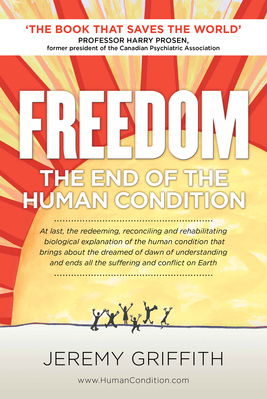
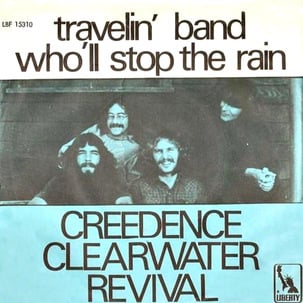
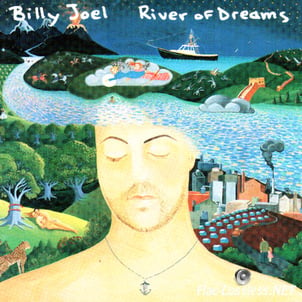
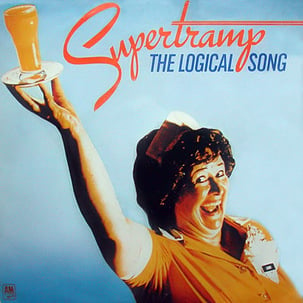
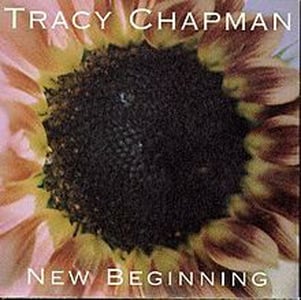
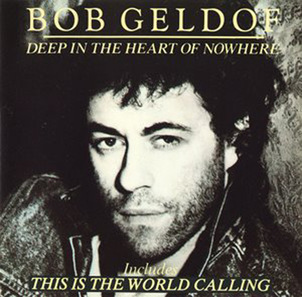
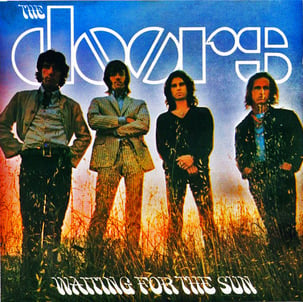

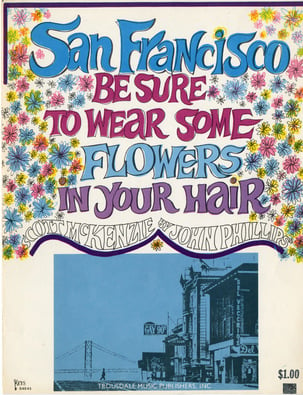
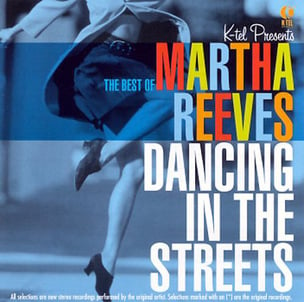
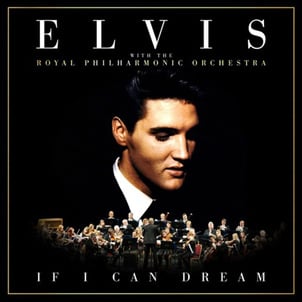
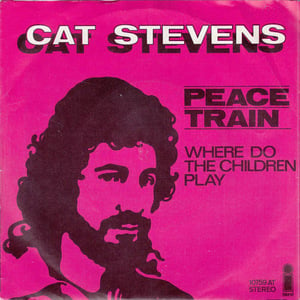
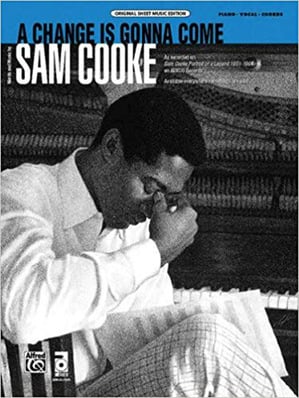
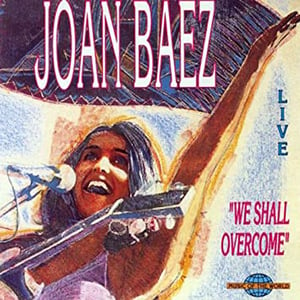
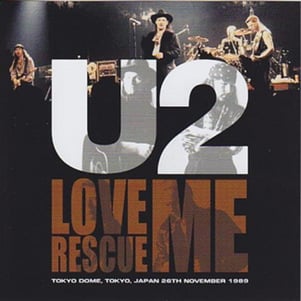
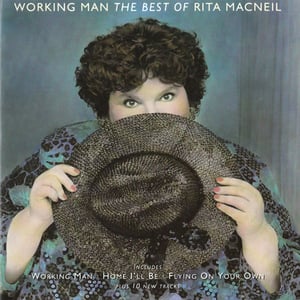
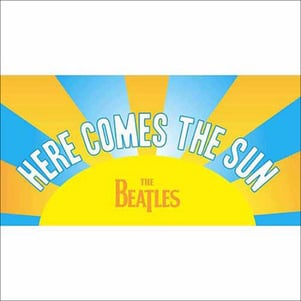
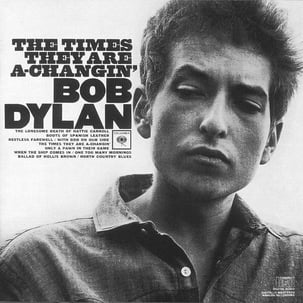
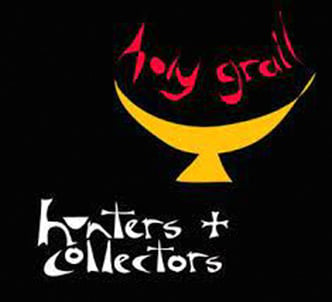
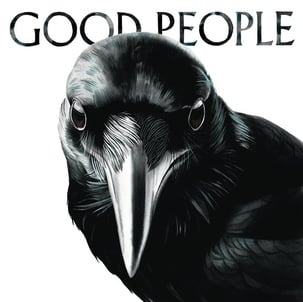
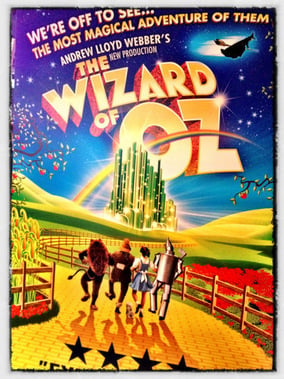
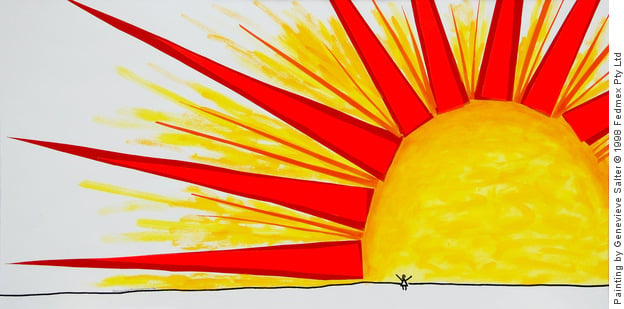
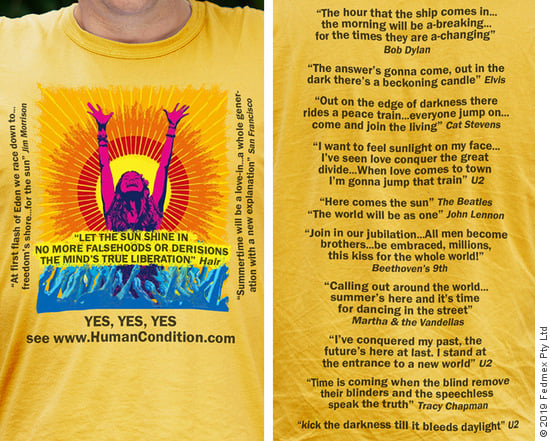
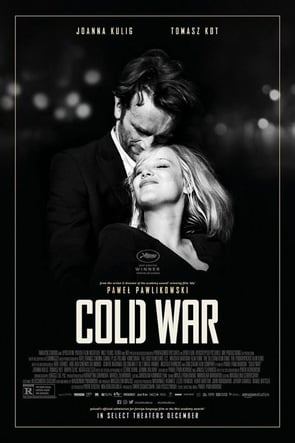
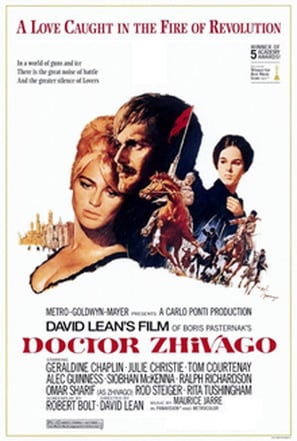

Please wait while the comments load...
Comments